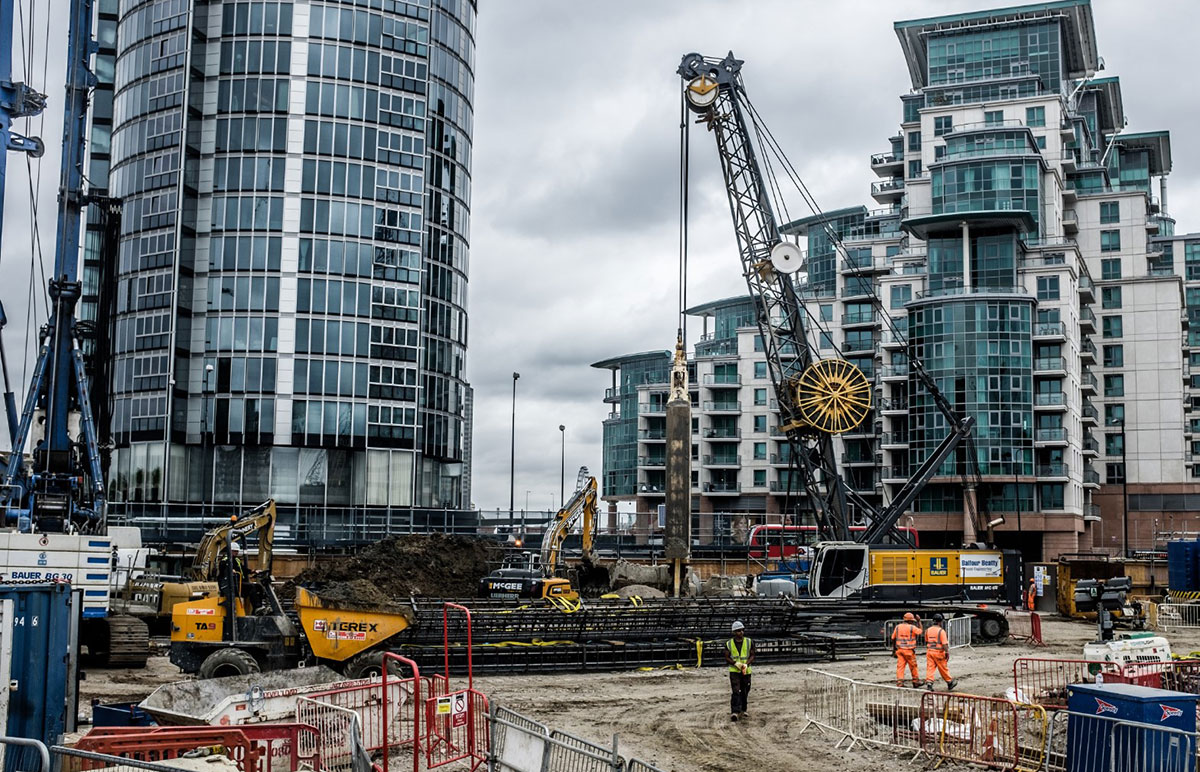The Best Strategy To Use For Geotheta
The Best Strategy To Use For Geotheta
Blog Article
Little Known Facts About Geotheta.
Table of ContentsExcitement About GeothetaSome Known Details About Geotheta Getting The Geotheta To WorkGetting My Geotheta To Work
They work together with civil engineers, architectural designers, designers, and other experts to incorporate geotechnical factors to consider right into the overall project layout and building and construction procedure. This needs efficient teamwork, sychronisation, and interaction to make sure that the geotechnical aspects align with the task goals and satisfy regulatory needs.Mining & Products Engineering: Concepts of boring, penetration prices, and elements affecting the selection of boring method. Features of dynamites, firing systems and blast patterns. Blowing up techniques in surface area and below ground operations. Special blowing up techniques at excavation perimeters. Vibration and sound control. Mechanical and continuous approaches to fragmentation, consisting of longwall shearing and fullface boring.
Modelling of piece and fragment size distributions; comminution as a transfer feature. Comminution technology: squashing, grinding, dimension classification. Integrated analysis of fragmentation and comminution procedures. Offered by: Mining & Materials Design.
Excitement About Geotheta
Bachelor's degree programs in civil, geotechnical, geological, and environmental engineering normally last four years and consist of basic education programs in English, social science, and the liberal arts, as well as programs in innovative mathematics, structural geology, and fluid mineralogy. (https://geotheta.carrd.co/)
Geotechnical engineering includes the assessment of the soil and rock problems at a certain site, and their implications for the advancement of that website. As many frameworks count on the ground for assistance, it lacks surprise that a comprehensive understanding of the ground problems, and the suitability of foundation systems, are essential to the long-term security and efficiency of the structure or framework.
Being experts in the investigation of geological developments and ground behavior, geotechnical designers carry out scientific examinations and screening to comprehend the influence these geological developments might carry the layout and construction of structure, civil and facilities tasks. This proficiency is crucial for the layout and building of buildings, roadways, tunnels, dams, bridges, and water and sewer systems.
The geotechnical group at Douglas Partners consistently speak with architects, style engineers, developers, and home builders to make recommendations on design and development propositions to make sure that the built structures are appropriately created for the ground conditions. For instance, the layout of footing systems requires to think about the weight of the structure, the capability of the ground to support that weight with each other with movement tolerances and efficient building.
See This Report on Geotheta
This task is significantly simplified by the use our Douglas Map geospatial system that makes this details easily obtainable in a very easy to use internet browser interface. A geotechnical engineer will direct the exploration of boreholes and test pits to gather dirt and various other samples, and also assess surface area features and ground exposures to develop a geotechnical design of the subsurface conditions.
Relying on the project type and ground problems ran into, research laboratory screening may to name a few points examine stamina, compressibility, reactivity and/or leaks in the structure of soil and rock samples. After this information is accumulated and collated, the results are utilized for a geotechnical model of the website, which is usually provided as areas across the website.

A geotechnical investigation naturally can just examine the ground problems at the locations pierced or dug deep into. Natural variations in dirt and rock conditions can take place throughout a site and in between test places. It is as a result excellent practice that the geotechnical designer be preserved throughout building and construction of the job to provide on-site verification that the ground conditions encountered follow the assumptions and recommendations given in the geotechnical investigation report.
The 9-Second Trick For Geotheta
Geotechnical designers utilize their comprehensive expertise of soil and rock to evaluate threat and fix issues on diverse framework projectsGeotechnical design is a specialist branch of civil engineering which considers the practices of earth products and the application of soil and rock mechanics. Geo Tech Engineering. As a geotechnical engineer, you will assess the physical, mechanical and chemical residential properties of dirt and rock in order to make foundations, retaining frameworks and earthworks
Geotechnical engineering is very closely linked to and overlaps with, both design geology and ground engineering - https://old.bitchute.com/channel/GgOXLypkqwPa/. It's feasible to specialise in geotechnics or benefit a geotechnical firm however be understood as an engineering geologist or a ground designer. As a geotechnical engineer, you'll need to: construct and preserve partnerships with customers and other specialists associated with the website, throughout each projectmaintain safety and security requirements on website bear in mind cost effects when you make recommendationsstudy geological maps and aerial pictures from a series of sources and from different time periodsexamine building and construction intends to see just how practical they find out are based on your understanding of the siteinvestigate threats or geological hazards for the sitesearch for eco sensitive attributes, such as landfill start to establish valid and interpretive ground modelsplan area investigationsdrill and analyse examples of bedrock, soil, groundwater and extra products monitor various other professionals on sitesolve technological issues as they develop, such as unexpected structures at drill sitesmonitor problems during and after building to ensure structures are steady in the brief and long termadding data accumulated on website to your initial researchcreating geotechnical estimations, illustrations, and two or three-dimensional computer designs analyzing the datamaking recommendations regarding the recommended use of the site

Report this page